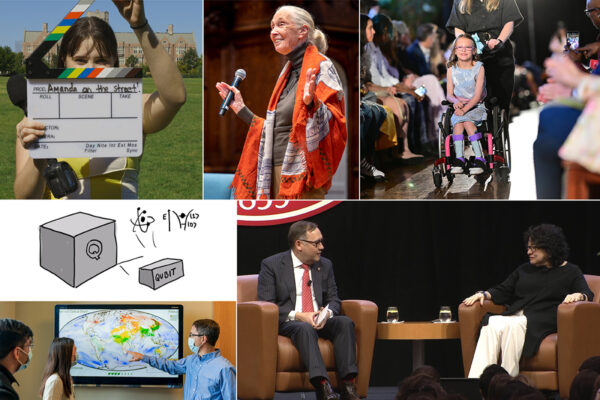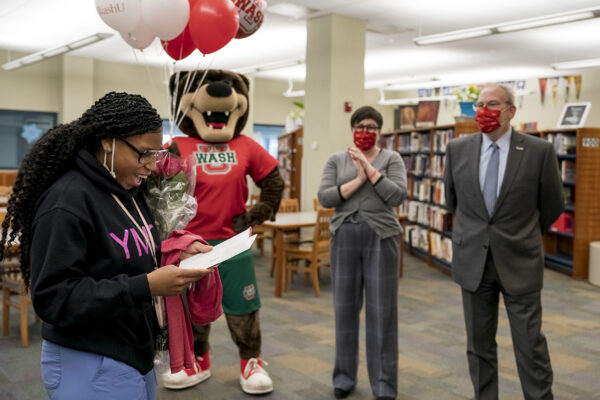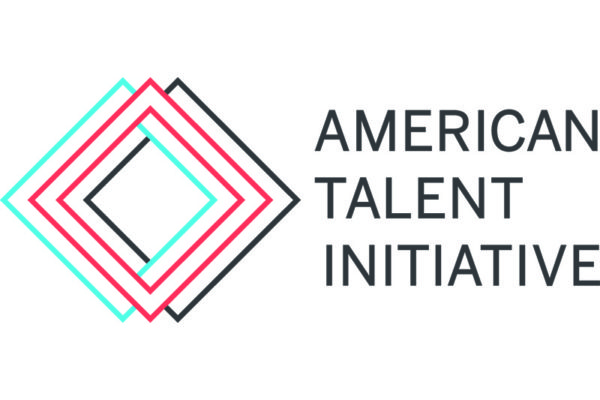Washington University in St. Louis made huge strides in 2022 to make its programs and degrees more accessible to students of all backgrounds. From the transformative Make Way initiative to full scholarships for low-income School of Law JD students to stipends for students who intern at St. Louis nonprofits and business, these programs build on the momentum of existing initiatives such as the WashU Pledge and the $1 billion Gateway to Success investment in financial aid, which allowed the university to adopt a need-blind admissions policy.
Here is recap of some of last year’s top stories about financial aid from The Source.
Transformative fundraising initiative ‘makes way’ for top applicants
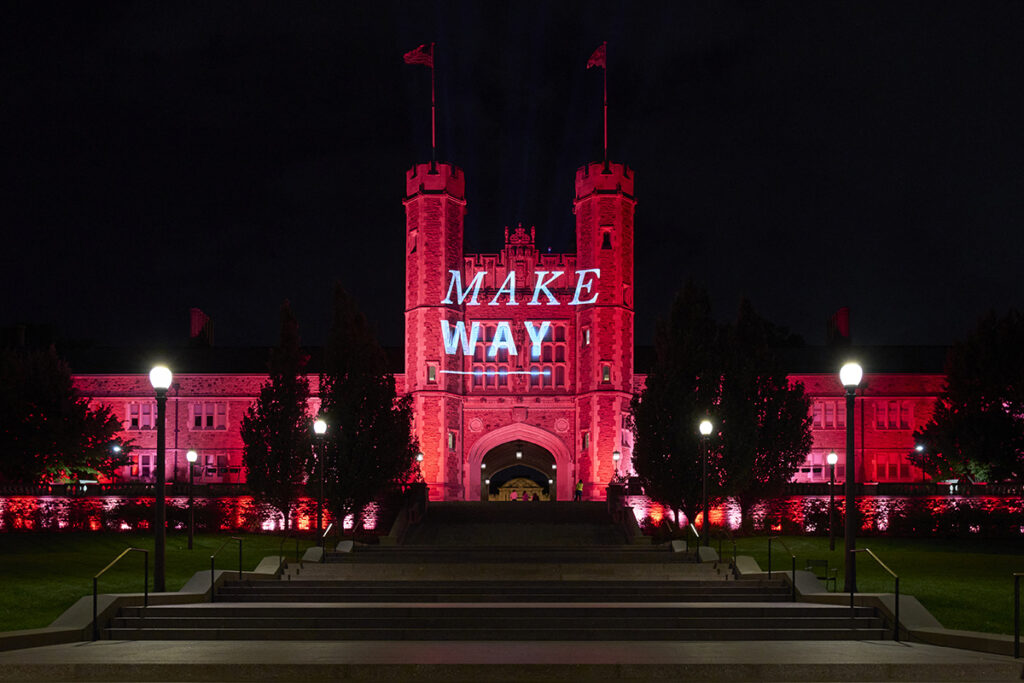
Make Way: Our Student Initiative is building financial resources for undergraduate scholarships, graduate scholarships and fellowships, and the student experience, helping Washington University remove financial barriers for the most qualified students and offer every student the freedom to navigate an educational path. The aim is to not only increase financial resources for students at every level of need, including middle-income students, but also to provide a best-in-class campus experience.
School of Law announces tuition-free legal education for students from low-income households
Washington University School of Law in St. Louis will offer full-tuition scholarships for admitted JD students whose family income is less than 200% of the federal poverty level. In addition, all admitted students will receive a scholarship designed with their challenges and goals in mind.
“Financial support is not the entire solution, so every student will receive an award designed specifically for them, which could include funding for conferences, support for unpaid summer work, child care, mentors and more,” said Russell K. Osgood, dean of the School of Law.
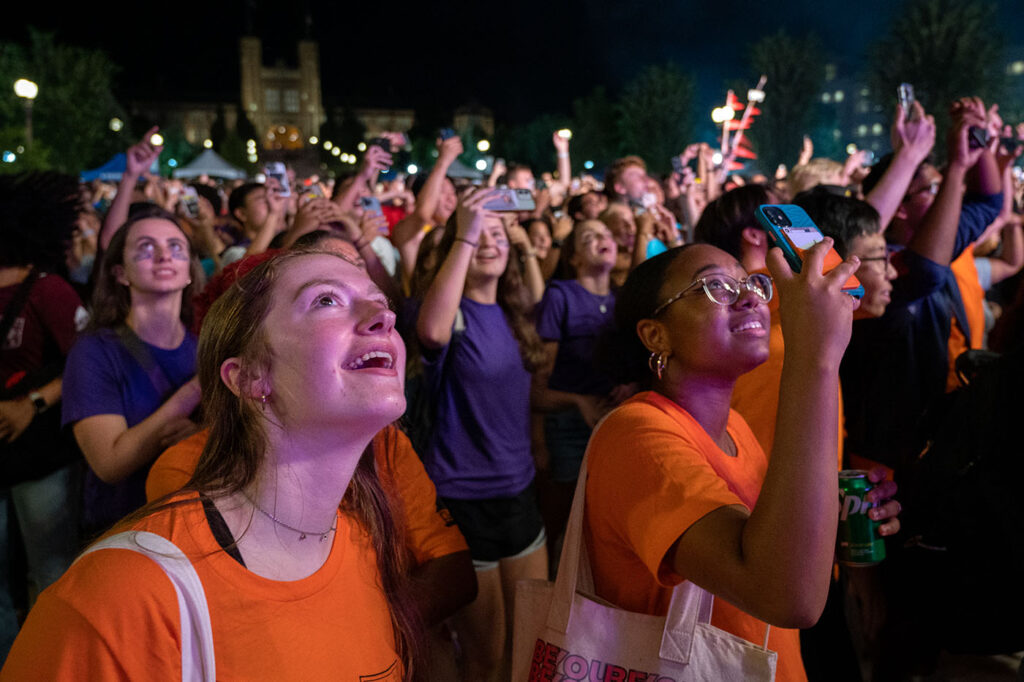
WashU hits major milestone: Class of 2026 is 20% Pell Grant-eligible, 15% first-generation
The university hit a major milestone in its quest to enroll more students with limited resources: 20% of the Class of 2026 is Pell Grant-eligible, a 15 percentage-point increase from 10 years ago. In addition, 15% of the class is first-generation and 51% identify as students of color.
In total, 1,826 first-year students from across the globe enrolled in the Class of 2026. They were selected from a field of 33,214 applicants.
“We’ve been working hard at this for a long time,” said Ronné Turner, vice provost for admissions and financial aid.
University to launch Kessler Scholars Program for first-generation students
Washington University is launching a new cohort initiative, the Kessler Scholars Program, which will recruit and support first-generation and limited-income students who want to improve society using their science, technology, engineering and mathematics (STEM) degrees.
The university chose to focus on STEM and social impact for two reasons. One, many limited-income students report a strong interest in careers that address societal challenges such as public health and climate change. And two, research shows that low-income students who attended a high school with limited STEM offerings are more likely to abandon their STEM studies.

Summer in St. Louis: WashU funds internships at St. Louis startups, nonprofits
Washington University in St. Louis spent $28 million in summer stipends and wages in 2022 to prepare students for future careers, strengthen the St. Louis region and fuel the local economy. The students worked in nearly every field, administering medicine to sick animals at the Wildlife Rescue Center, studying drug-delivery systems for med-tech startup UN & UP, directing young actors at the Center of Creative Arts, investigating pollution complaints for the Great Rivers Environmental Law Center, and more.
Buchheit gift aims to help draw more rural students to WashU
Alumna and Emerita Trustee Joyce Buchheit and her husband, Chauncy Buchheit, made an $845,000 gift to help the university attract more talented students from rural communities in Missouri and southern Illinois. The gift establishes a free summer college preparatory program and funds two admissions officers dedicated to rural communities served by the WashU Pledge.
“WashU benefits greatly from the talents, perspectives and experiences of our rural students, but the truth is that too few rural students know who we are, and fewer still know that a WashU education is accessible,” Chancellor Andrew D. Martin said.
